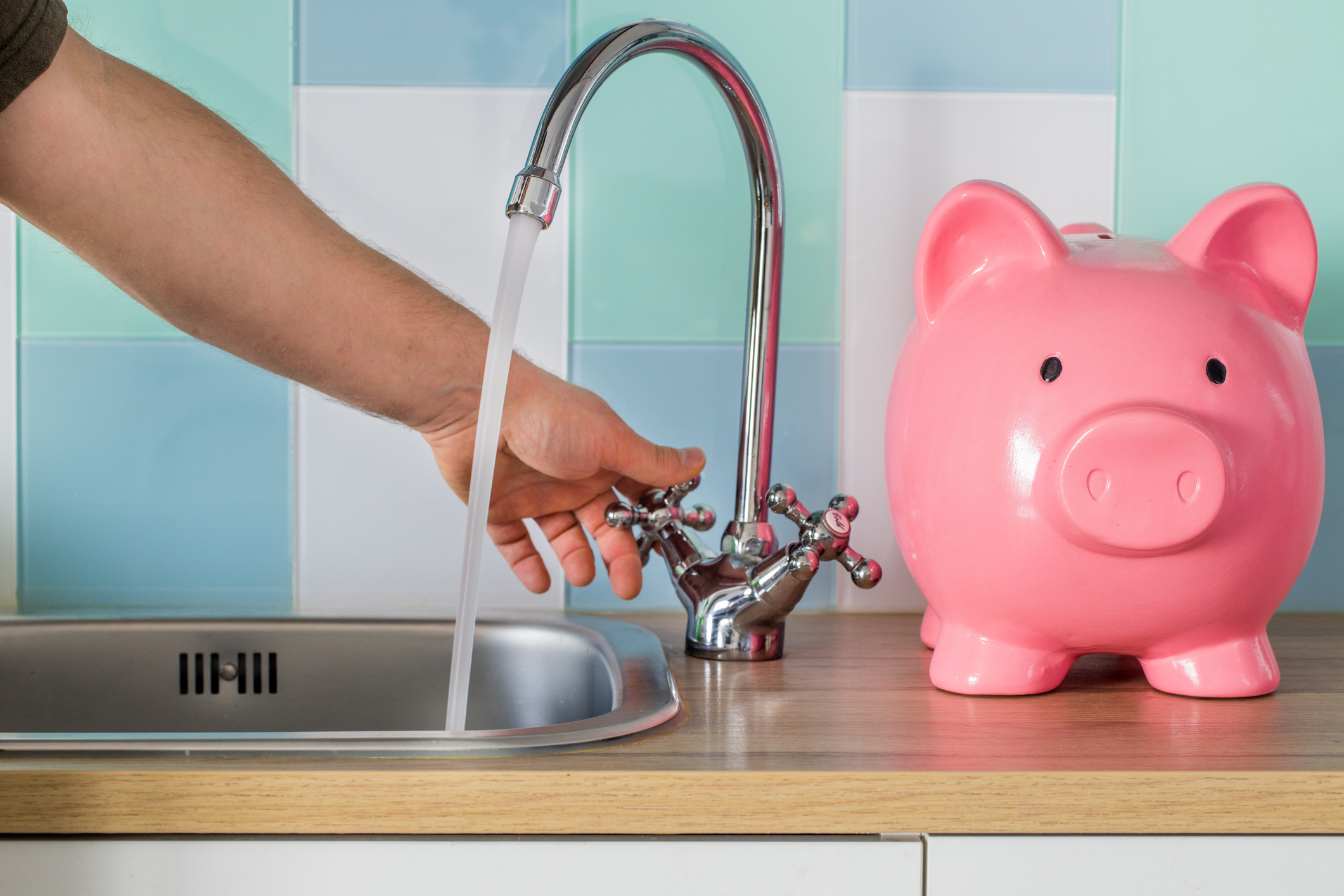Water bills set to rise by up to 13% – how much more will you pay from April?
Billpayers in England and Wales could have to pay up to £55 more per year for their water bills from this spring

Daniel Hilton

Get the latest financial news, insights and expert analysis from our award-winning MoneyWeek team, to help you understand what really matters when it comes to your finances.
You are now subscribed
Your newsletter sign-up was successful
Want to add more newsletters?

Twice daily
MoneyWeek
Get the latest financial news, insights and expert analysis from our award-winning MoneyWeek team, to help you understand what really matters when it comes to your finances.

Four times a week
Look After My Bills
Sign up to our free money-saving newsletter, filled with the latest news and expert advice to help you find the best tips and deals for managing your bills. Start saving today!
Millions of households in England and Wales are set to see their water bills rise by as much as 13% per year from 1 April to cover investment in the pipe and sewage network.
The amount extra you will pay depends on where you live as charges vary depending on your water provider.
Customers will have to pay an average of 5.4% more, £33, from this spring – two percentage points above December’s CPI rate of inflation.
MoneyWeek
Subscribe to MoneyWeek today and get your first six magazine issues absolutely FREE

Sign up to Money Morning
Don't miss the latest investment and personal finances news, market analysis, plus money-saving tips with our free twice-daily newsletter
Don't miss the latest investment and personal finances news, market analysis, plus money-saving tips with our free twice-daily newsletter
The rate hikes are being used to fund a £20 billion investment into fixing leaking pipes and reducing sewage spills from storm overflows in 2026/27. In total, water companies are expected to spend £104 billion on repairs across the network between 2025 and 2030.
David Henderson, chief executive of Water UK, the trade body that represents water companies, said: “We understand increasing bills is never welcome, but the money is needed to fund vital upgrades to secure our water supplies, support economic growth and end sewage entering our rivers and seas.”
How much water bills will rise by
Water bills vary across England and Wales depending on region, population and how much each firm needs in funding.
Southern Water customers will see their bills rise by £55 per year from April, while households serviced by Thames Water will only see a rise of £3 a year.
A regional breakdown of average household bills for 2026/27 is below:
Water and wastewater companies | 2026-27 | Change (£) | Change (%) |
Anglian Water | £674 | £44 | 7% |
Dwr Cymru (Welsh Water) | £683 | £31 | 5% |
Hafren Dyfrdwy | £635 | £54 | 9% |
Northumbrian Water | £535 | £31 | 6% |
Severn Trent Water | £587 | £52 | 10% |
South West Water | £740 | £39 | 6% |
Southern Water | £759 | £55 | 8% |
Thames Water | £658 | £3 | 0.40% |
United Utilities | £660 | £57 | 9% |
Wessex Water | £695 | £17 | 3% |
Yorkshire Water | £636 | £34 | 6% |
Meanwhile, the following providers only deliver water and do not deal with wastewater. Their prices are therefore much lower than dual providers:
Water-only companies | 2026-27 | Change (£) | Change (%) |
Affinity Water [Central region] | £266 | £31 | 13% |
Affinity Water [East region] | £280 | £1 | 0.40% |
Affinity Water [South east region] | £294 | £3 | 1% |
Bournemouth Water | £205 | £11 | 6% |
Bristol Water | £264 | £29 | 12% |
Essex and Suffolk Water | £333 | £15 | 5% |
Portsmouth Water | £162 | £13 | 8% |
South East Water | £324 | £21 | 7% |
South Staffs Water [Cambridge region] | £210 | £7 | 3% |
South Staffs Water [South Staffs region] | £230 | £6 | 2% |
Sutton & East Surrey Water | £257 | £26 | 11% |
Why are water bills increasing?
Ofwat, the water services regulation authority, has outlined a plan to invest £104 billion into England’s water infrastructure between 2025 and 2030. Nine new reservoirs will be built and existing infrastructure will be improved.
This means water prices are likely to remain high for the next four years.
Struggling households can get help through social tariffs and the WaterSure scheme, with 300,000 extra expected to receive help in 2026/27, on top of the two million that currently get help, according to Water UK.
However, the hikes to water bills have been met with criticism from the Consumer Council for Water (CCW), the water industry watchdog.
Mike Keil, CCW chief executive, said: “We’ve seen complaints brought to CCW about the affordability of water bills almost triple in the past year and further bill rises will compound people’s worries. People support investment in improving services, but they are impatient for change and need to see compelling evidence their money is being well spent.”
The CCW has made calls for a single universal social tariff that all households in England and Wales could be eligible for. Currently, support for low income households varies depending on where you live.
How to lower your water bill
Though you are unable to take your business elsewhere to avoid water price increases, there are ways to keep your bill down.
One such way is by asking your supplier for a water meter. These charge you depending on your actual usage rather than a fixed amount based on the value of your home.
Do note, water meters can be cost-effective for households with less people in, but can work out more expensive if your usage is higher than the average.
MoneyWeek explains how a water meter can save you money in a separate guide.
You can also make simple, practical steps to reduce the amount of water you use. For example, by having more showers than baths or by installing water-saving gadgets like tap inserts and garden hose nozzles.
We explain how you can save money on your overall energy bill in a separate piece.
Get the latest financial news, insights and expert analysis from our award-winning MoneyWeek team, to help you understand what really matters when it comes to your finances.

Sam has a background in personal finance writing, having spent more than three years working on the money desk at The Sun.
He has a particular interest and experience covering the housing market, savings and policy.
Sam believes in making personal finance subjects accessible to all, so people can make better decisions with their money.
He studied Hispanic Studies at the University of Nottingham, graduating in 2015.
Outside of work, Sam enjoys reading, cooking, travelling and taking part in the occasional park run!
- Daniel HiltonWriter
-
 Can mining stocks deliver golden gains?
Can mining stocks deliver golden gains?With gold and silver prices having outperformed the stock markets last year, mining stocks can be an effective, if volatile, means of gaining exposure
-
 8 ways the ‘sandwich generation’ can protect wealth
8 ways the ‘sandwich generation’ can protect wealthPeople squeezed between caring for ageing parents and adult children or younger grandchildren – known as the ‘sandwich generation’ – are at risk of neglecting their own financial planning. Here’s how to protect yourself and your loved ones’ wealth.